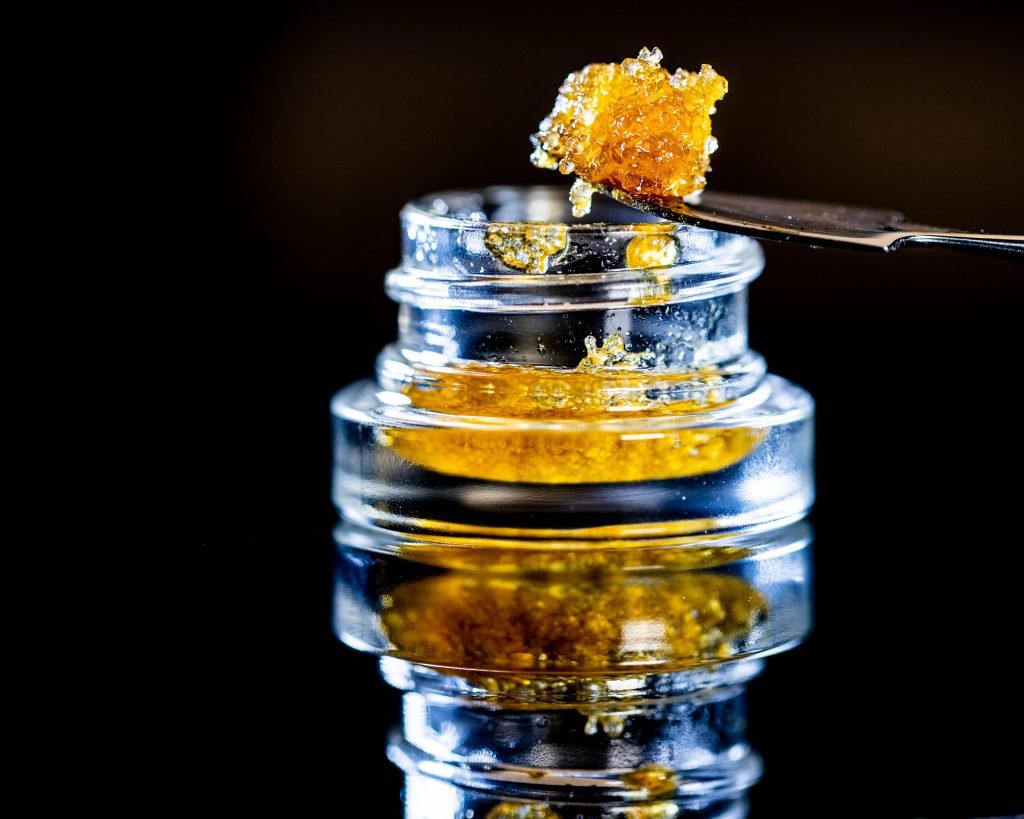
To become fully immersed in the cannabis community, you’ll need to speak the language. Cannabis professionals and enthusiasts have their own lingo, and one of our goals at Chronic Creations is to help businesses and individuals connect with each other more effectively. This glossary contains many of the terms you should know if you want to communicate efficiently when it comes to cannabis concentrates and other products.
710
710 is the second most popular number among members of the cannabis community after 420, and is often used in conversations about cannabis concentrates. The number 710, when turned 180°, looks like the word OIL, a reference to cannabis extracts.
Boiler or Band Heater
This type of component controls the temperature for cannabis concentrate extractions. A band heater raises the temperature by using electricity, or a boiler applies heated mixtures of water and glycol to increase the temperature.
Cannabinoid Distillation
You may hear this called fractional distillation. This technique relies on a vacuum to help separate the cannabinoids from the other natural ingredients in refined cannabis oil. More advanced techniques may also use centrifugal force to help with the distillation. This process uses heat to vaporize cannabinoids from cannabis oil, then uses a vacuum to gather the vapor. The vapor is cooled until it condenses again, at which point the gathered cannabinoids can be used in products. This technique can separate cannabinoids from cannabis oil, but it cannot separate the cannabinoids from themselves. In other words, cannabinoid distillation cannot isolate CBD and THC.
Chromatography
The process of chromatography can isolate different cannabinoids from a distillate or refined oil. There are multiple different types of the chromatography process, and the cannabis concentrate company may choose one over the other depending on what they want to accomplish. Cannabinoids can be isolated to a concentration of up to 99%, which makes chromatography extremely relevant to dispensaries that want the purest cannabis concentrates in Colorado.
Clarification
Clarification is a process that removes pigments like chlorophyll from a cannabis concentrate using silica, activated carbon, or activated earth clays. When chlorophyll is removed, a mixture offers even more purity in terms of terpenes and cannabinoids.
Closed-Loop System
Extraction systems use a closed-loop design to reuse solvents after a cannabis extraction process has been completed. A closed-loop system collects solvents at the end of the process so they’re not lost. This is valuable for both safety and efficiency.
Collection Vessel
Simply put, the collection vessel is where concentrates gather at the end of an extraction process.
Crystallization
This is the process by which THCA crystals and CBD crystals are formed. First, cannabinoids are isolated into very concentrated solutions. The solvents are removed, liquids are separated, and temperatures are adjusted as needed until cannabinoids clump together and form crystals.
Dabbing
The process of vaporizing and inhaling cannabis concentrates is also called dabbing. This practice is popular among cannabis enthusiasts who wish to consume large amounts of cannabinoids quickly. Dabbing normally requires special equipment such as dab pens or dab rigs.
Dab Rig
Devices designed specifically for concentrates are referred to as dab rigs. They may also be created by modifying traditional pipes, especially water pipes, with the addition of something called a nail.
Decarboxylation
Decarboxylating, often shorted to decarbing, is the process of using heat to activate THCA and turn it into THC. Cannabis flowers naturally contain THCA, which is not psychoactive until it gets decarboxylated. This is especially important for products like edibles that will not be heated as they’re consumed.
Distillate
This relatively clear liquid is extremely high in cannabinoids because it has been distilled in a vacuum to separate cannabinoids from other natural ingredients like terpenes and pigments.
Emulsion
An emulsifier is added to cannabis oil and water to make the concentrate more stable.
Extraction
Extraction is one of the most important processes in the cannabis concentrate industry. Organic compounds like terpenes and cannabinoids are removed from cannabis plant material. There are solventless cannabis concentrates, but most concentrates are extracted by using a solvent like butane, propane, or ethanol.
Extraction Vessel
This is where the extraction happens. It’s normally a stainless steel container that can withstand the process of adding plant material and solvents.
Full-Spectrum Cannabis Oil
Full-spectrum oil contains all of the major organic compounds found naturally in cannabis. Unlike isolates that only contain cannabinoids, full-spectrum oil also includes terpenes, flavonoids, and fatty acids from cannabis. Full-spectrum cannabis oil is in demand because these other components may enhance the effects of cannabinoids due to the entourage effect.
Isolate
An isolate is a product that contains only an individual cannabinoid such as THC or CBD. Cannabis isolates do not contain significant levels of terpenes, flavonoids, and fatty acids. These products are designed for consumers who only want a specific cannabinoid and nothing else.
Pressure Regulator
This device controls the pressure throughout the extraction process to ensure higher levels of safety and efficiency.
Recycler
In a closed-loop cannabis extraction system, the recycler is responsible for housing the solvent that has already been used so it can be introduced to the extraction vessel again.
Refined Oil or Refined Cannabis Extract
This product has been clarified and winterized after extraction. Normally amber in color, this product is rich in cannabinoids and may have a consistency like thick oil.
Separation
During the extraction process, cannabinoids and other organic compounds like terpenes must be moved away from the rest of the plant material. This process may be able to separate compounds based on their molecular weight or evaporation point.
Shatter
Also referred to as glass, this is a type of finished cannabis concentrate product. It’s relatively stiff in nature and can be shattered, which is how it gets its name. It is normally vaporized by dabbing, but may also be combined with flower and smoked.
Solute
The solute is the substance the solvent extracts from plant material. In the case of cannabis extraction, the most desirable solutes include cannabinoids, terpenes, flavonoids, and fatty acids.
Solvent
Substances with the properties required to separate cannabinoids and other desirable organic compounds from cannabis plant material are called solvents. Popular examples include butane, propane, and ethanol.
Terp Juice
Terpene juice or terp juice is a type of extract that contains especially large amounts of terpenes relative to its concentration of cannabinoids. It can be dabbed or vaporized on its own, and is commonly added to THCA diamonds to provide more flavor.
Vape Oil
These concentrates are normally combined with substances like propylene glycol to give them a consistency that’s better for vape pens and cartridges.
Wax
Also referred to as a crude extract, wax is one of the simplest types of cannabis concentrates. It contains cannabinoids, terpenes, and other solutes from the cannabis plant. Wax is one of the most popular types of cannabis concentrates. It’s easier to work with than shatter, though it doesn’t last quite as long on the shelf.
Winterization
Wax or crude extract can go through the process of winterization to remove fatty acids and other less desirable solutes. Winterization leads to cannabis concentrates that have higher concentrations of cannabinoids and terpenes. To winterize a cannabis concentrate, the temperature is adjusted so the less desirable solutes solidify and can be separated.
Image: 420MediaCo


Recent Comments